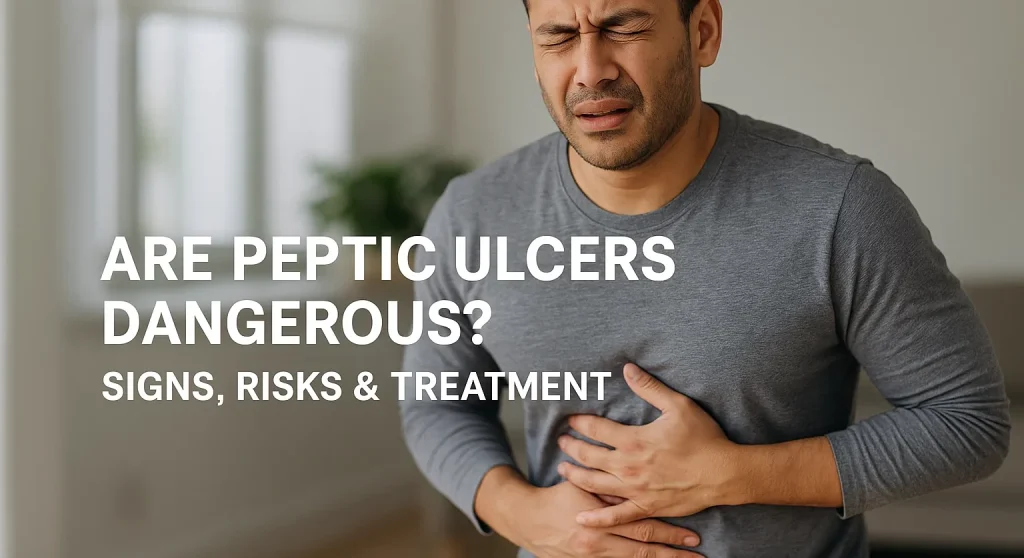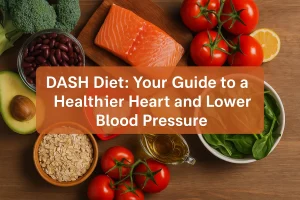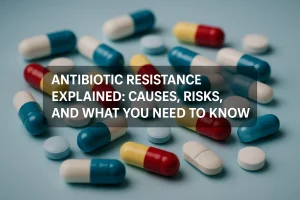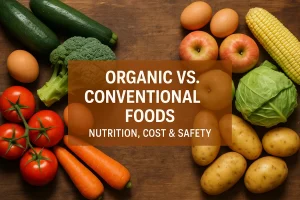
Are Peptic Ulcers Dangerous? Signs, Risks & Treatment Guide
Peptic ulcers are open sores that can form in your stomach or intestine. While they can be painful and risky if ignored, early diagnosis and proper treatment can prevent serious complications. Here’s how to spot the warning signs and protect your digestive health.
What is a peptic ulcer?
Peptic ulcers are open sores that develop in the stomach lining, oesophagus, and small intestine. They occur when the mucosal lining of the stomach gets infected by the bacterium H. pylori, causing corrosion of the stomach wall due to digestive juice, leading to peptic ulcers. Common symptoms include nausea, bloating, vomiting, stomach pain, etc.
What are the types of peptic ulcers?
The type depends upon the region it affects, such as the stomach and duodenum.
- Gastric Ulcers—appear in the stomach lining (~80% of the cases)
- Duodenal ulcers—They occur in the upper part of the intestine (~20% of the cases). In unusual circumstances, you can also get ulcers when the stomach acid refluxes into the upper gastrointestinal region. These are
- Oesophageal Ulcer—It may be due to the chronic acid reflux (stomach acid rises in the oesophagus), corroding the oesophageal lining enough to cause an ulcer.
- Jejunal Ulcer—You can get an ulcer in your middle part of the intestine (jejunum) or due to the side effect of surgery (gastrojejunostomy).
What are the symptoms related to a peptic ulcer?
~ 65-70% of cases don’t notice any symptoms, but the most common symptoms that are observed are epigastric pain and digestive issues (dyspepsia). Some of the symptoms include
- Burning Stomach—Due to the gastric enzymes affecting the stomach wall
- Bloating or feeling of fullness
- Burping or Stomach acid reflux
- Nausea & vomiting
- Loss of appetite
- Unexplained weight loss
Complications with Peptic Ulcers
Sometimes people with this condition have extra complications. This can happen if the condition is untreated for too long, as an untreated ulcer may bleed and continue to damage your stomach wall, leading to a more severe condition.
This includes:
- Rapid heart rate
- Dark stools (this could indicate internal bleeding).
- Pallor (skin paleness)
- Blood vomit (a sign of a serious ulcer that needs medical attention.)
Sometimes, the heavy gastrointestinal infection may lead to perforation or a hole. Its symptoms include
- Sharp or severe abdominal pain
- Abdominal swelling
What is the cause of peptic ulcer disease?
The mucus lining of your stomach is designed to tolerate the highly acidic environment of the stomach and protects your stomach wall from being corroded or irritated. If anything interferes with the natural defenses, then it causes the ulcers to appear in the stomach.
The mucosal lining in the stomach has a repair mechanism that can repair tissues if there is any kind of infection or stomach irritation that can affect the stomach lining. In case the infection persists for longer, it may lower the defenses enough to produce a peptic ulcer, which can corrode and damage further, leading to the condition called peptic ulcer disease.
Some researchers have identified two main causes of peptic ulcer disease (PUD), which include:-
- Pylori Infection—It has a very high occurrence, and nearly half of the population has this bacterium living in their stomach. These bacteria do not harm, but if overgrown, they may affect the natural balance of the gut microbiome, causing infection. In case of chronic inflammation in your gastrointestinal lining, it can lead to severe damage to the wall, such that it loses the ability to self-repair, leading to a more serious condition.
Non-steroidal anti-inflammatory drugs (NSAIDs) are common over-the-counter (OTC) medications mainly used as pain relievers, such as aspirin and ibuprofen. Overuse of these drugs without a prescription for a long time may interfere with the stomach hormones, like prostaglandins, making the stomach more vulnerable to damage from acid and digestive enzymes.
Other Uncommon Causes
- Ischemia (loss of blood supply).
- Due to injury or life-threatening disease
- Chemo/radiotherapy.
- Stomach Cancer
Risk Factors – Risk factors depend on your medical condition and lifestyle habits. Some of the conditions that can increase the risk of peptic ulcer include
Medical Conditions
pylori—A common bacterial infection that weakens the stomach lining.
Long-term NSAID use—high doses of it can cause ulcers, especially in older adults.
A history of ulcers increases the recurrence risk.
Lifestyle Risk Factors:
Smoking and drinking—they can erode and slow ulcer healing.
High stress levels—It doesn’t directly cause ulcers, but it can worsen symptoms and healing.
Unhealthy Diet—Spicy, acidic, or irregular meals may worsen the ulcer (not direct causes, but can aggravate).
Diagnosis and Treatment
If you have any signs and symptoms of a Peptic ulcer, your provider will ask you about
- Symptoms like Stomach pain (pattern, timing)
- Use of NSAIDs
- Smoking, alcohol, and diet habits
- Previous ulcers or related conditions
Upper GI endoscopy with biopsy: To check for the H. pylori infection, they will examine your gut by using a thin hollow tube with a camera through which they can also take a small tissue sample (biopsy) for further examination and monitoring.
- Other tests include the urea breath test and the stool antigen test for H. pylori. Testing.
- Imaging tests include barium swallow X-rays to detect any abnormal outgrowths and look for ulcers and stomach cancer.
Treatment – Antibiotics are the only way to eliminate H. pylori infection, which is a main cause of peptic ulcers.
Common Medications Used for H. Pylori Infection
Antibiotics – These help kill the H. pylori bacteria:
- Doxycycline
- Metronidazole
- Clarithromycin
- Amoxicillin
Cytoprotective Agent- This coats and protects the stomach lining from acid damage:
- Sucralfate forms a protective barrier
- Misoprostol—increases mucus and bicarbonate
- Bismuth Subsalicylate—antimicrobial and protective effect
Histamine-2 (H2) Receptor Blockers—These reduce stomach acid by blocking histamine, a chemical that stimulates acid production.
- Famotidine
- Cimetidine
- Nizatidine
Proton Pump Inhibitors (PPIs)—These lower stomach acid levels and protect the stomach lining to promote healing:
- Esomeprazole
- Dexlansoprazole
- Lansoprazole
- Omeprazole
- Pantoprazole
- Rabeprazole
Note: Only take the antibiotics and other medicines listed above if prescribed by a doctor.
Prevention
- Avoid Overuse of NSAIDs (Painkillers): Nonsteroidal anti-inflammatory drugs (like ibuprofen) can irritate the stomach lining and increase the risk of ulcers. Use them carefully and always under a doctor’s guidance.
- Manage Stress: Stress doesn’t directly cause ulcers, but it can worsen them. Finding healthy ways to manage stress, like meditation or exercise, can be beneficial.
- Healthy Diet: Eating a balanced diet rich in fiber, vegetables, fruits, and lean proteins can help prevent ulcers. Avoid spicy foods, acidic drinks (like citrus and caffeine), and alcohol, as they can irritate the stomach.
- Quit Smoking: Smoking reduces the stomach’s ability to protect itself from harmful substances as well as increases the acidity, which can harm the stomach.
- Limit Alcohol Consumption: Excessive alcohol can irritate and erode the stomach lining, making it more susceptible to ulcers.
- Helicobacter pylori Infection: This bacterial infection is a major cause of ulcers. If diagnosed, treating it with antibiotics can help prevent ulcers.
- Eat Small, Frequent Meals: Eating smaller meals more frequently can help reduce stomach acid production, which can prevent irritation to the stomach lining.
- Be Hydrated: Drinking enough water helps maintain the stomach lining and digestive processes; it also helps provide comfort.
Final Thought:
Untreated peptic ulcers can be dangerous, but most people recover fully with early diagnosis, treatment, and healthy habits. If you have stomach pain or other warning signs, talk to your doctor right away. Taking care of your gut health today can prevent serious problems tomorrow. While many ulcers start with mild symptoms like stomach pain or indigestion, they can lead to serious complications such as internal bleeding, perforation of the stomach wall, swelling, or even obstruction of the digestive tract. That’s why early diagnosis and screening are crucial for proper treatment, not just for relief, but to prevent life-threatening outcomes. Always consult with the best cancer clinic to check for this condition so that you can recover with an improved quality of life.
Frequently Asked Questions
Do peptic ulcers heal themselves?
While mild ulcers may heal on their own, it’s essential to confirm the cause and get proper treatment to avoid complications, but this requires a diagnosis to check for the condition. If it is caused by H. pylori, you will need immediate treatment to counter the effect.
Can stress really cause ulcers?
Stress alone doesn’t cause ulcers, but it can worsen symptoms and slow healing. Managing stress is part of good gut health.
Are peptic ulcers harmful?
They may be harmful if not treated early, as prolonged ulcers can bleed, which may further complicate the condition.
When should I see a doctor for a peptic ulcer?”
If you have severe stomach pain, black stools, unexplained weight loss, or vomit blood, see a doctor immediately. These can be signs of complications like bleeding or perforation.
What dietary modification do I need with peptic ulcer disease?
Yes, you may need to avoid spicy foods and oily foods to avoid worsening the peptic ulcers. You should include fibre-rich foods like green vegetables and fruits that aid in digestion and also improve overall digestive health.
Can I treat my peptic ulcers at home?
You can use antacids to avoid stomach burn and acid reflux; they might make you feel better, but they can’t cure it. Always seek a doctor, as prolonged peptic ulcers can lead to serious stomach issues.
Are peptic ulcers permanent?
A peptic ulcer could last for several years or a lifetime. If diagnosed early, the condition can be managed, and ulcers can be treated. Consult with your doctor to find the best possible way to remove the ulcer.
- 10 Best Foods to Eat During Chemotherapy to Boost Strength & Speed Recovery
- Is Vaping Harmful? Risks, Myths & Medical Facts Explained







